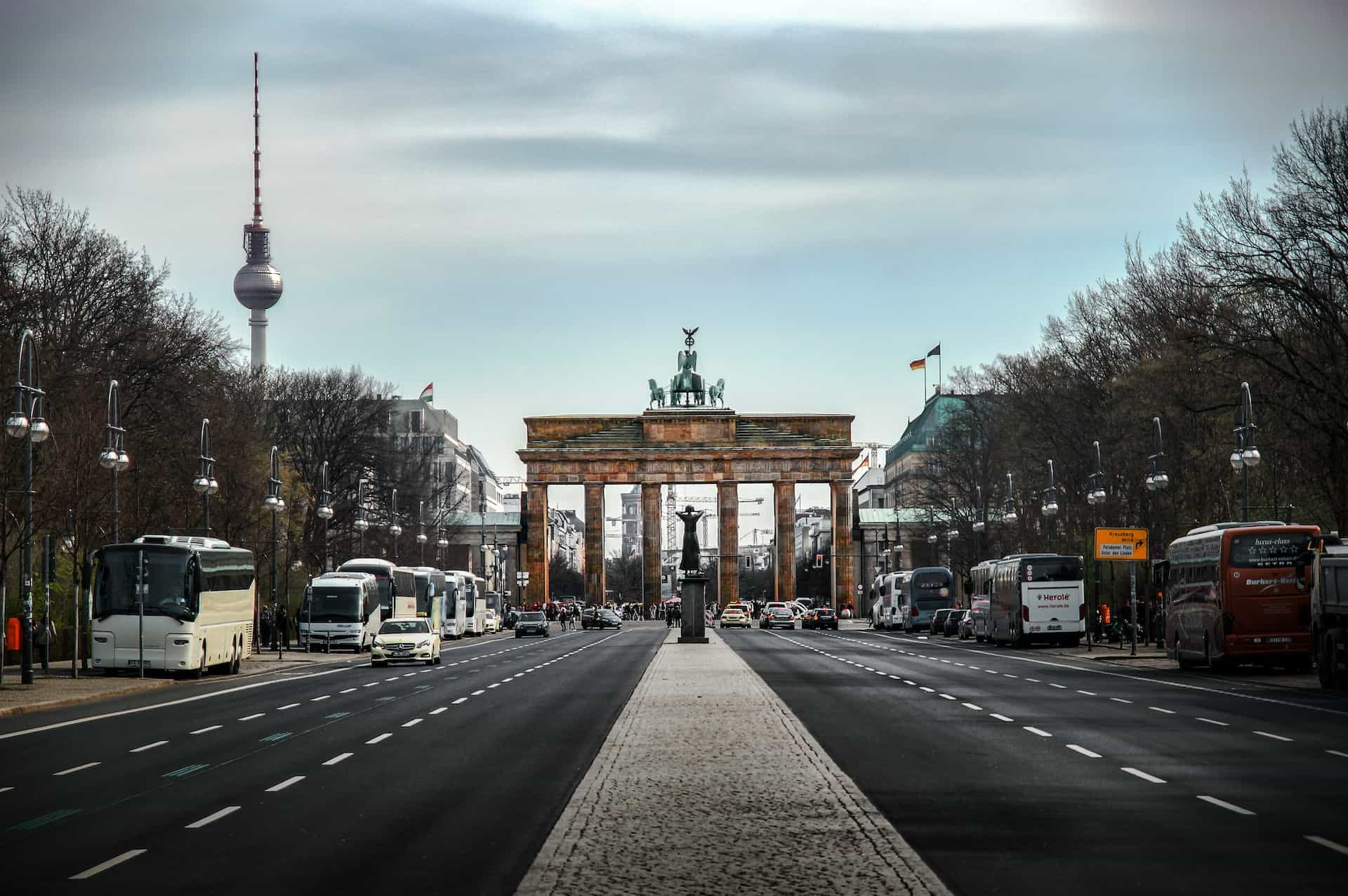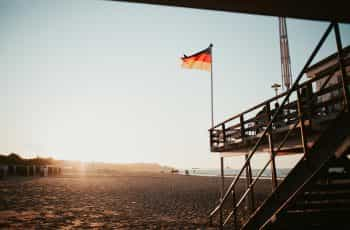German Court Rejects Red Rhino’s Complaint Against GGL’s Fine
The Higher Administrative Court of Saxony-Anhalt has recently rejected Red Rhino’s plea after the iGaming operator was fined €50,000 by the German Gambling Authority, Gemeinsame Glücksspielbeh?rde der L?nder (GGL) for operating in its jurisdiction without a valid license. The Malta-based operator pulled its German-facing domain down after the cancellation of its permit, but another Red Rhino-owned domain was still accessible in the country. The Maltese operator legally challenged the decision, but the outcome favoured the GGL.

Red Rhino has lost the appeal against GGL’s fine in Germany.
?Ansgar Scheffold/Unsplash
The State Treaty on Gambling 2021 – GlüStV 2021 – legalized online gambling in Germany. It also comprised strict regulations for the local and offshore operators that were set to offer iGaming and online sports betting to individuals within the borders of the country. The most significant reform came at the start of this year when the GGL became Germany’s first central gambling regulatory and supervisory authority. Earlier, the gambling activities in the 16 Federal States of Germany were monitored by individual state-run regulators. This posed a challenge for private operators seeking nationwide expansions in European countries. Now, that challenge has been put to rest as the GGL is in charge of granting gambling permits that will legitimize an operator’s services throughout Germany. The GGL’s jurisdiction is one of the most competitive markets in Europe. The online gambling market in Germany is projected to grow by 7.5 percent over the next four years, resulting in a market volume of about €6.42 billion in 2027 The gross gambling revenues in the forthcoming periods are expected to be high, primarily because of the online gambling segment.
Germany has one of the strictest gambling regulations in the world. The recent reforms may have legalized various forms of gambling, but certain games are still banned in the jurisdiction. In addition, the licensed operators have deposit limit obligations to follow if they want to retain their gambling licenses. These limits help in the battle against gambling addiction and harmful gambling, thus increasing player safety measures. Each gambler in Germany can only deposit a maximum of €1,000 into their gambling account per month. There is a €1 stake limit on online casino slots. Live casino games, progressive Jackpot-Slots, and live betting are not permitted in the GGL’s jurisdiction. The GGL has also imposed a blanket ban on gambling advertisements and made ID checks for age verification mandatory If a licensed operator complies with all these strict regulations, it can easily retain its gambling permit in Germany. The validity of each license is five years. The advertising restrictions and the deposit limits have discouraged a few operators in the past, but many major gambling entities are licensed and operating actively in the GGL’s jurisdiction.
The online sports betting industry is currently driving the German online gambling market forward, accounting for a sizable portion of the total online gambling market. The major gambling brands have focused on mergers over the past few years to increase their market stake and boost profit margins. Renowned online sports betting brands like Bet365, 888, Entain, Kindred, and Betsson are licensed to operate in Germany. The licensed online casinos’ list features names like DrückGlück Casino, Wildz Casino, Wheelz Casino, Spinz Casino, PlayOJO, and more. While many operators take the legal route for operations, there are a few who try to sneak into regulated jurisdictions illegally. Apart from monitoring the legal gambling operators in its jurisdiction, the GGL has to keep an eye out for unlicensed operators who are trying to reach German players via their offshore operations. The regulator has implemented a few measures to combat such operators, like relying on Internet Service Providers (ISPs) to block access to unregistered gaming platforms. Local payment service providers have been asked to block player transactions with unlicensed operators.
Earlier this year, the German operator detected some illegal activity in its jurisdiction, and Red Rhino was responsible for it. The Malta-based operator was once a gambling license holder in the country, offering online casino services via its brand, Platin Casino. However, the operator withdrew from the GGL’s jurisdiction this year. After the GGL cancelled its license, Red Rhino took its German-facing domain, Platincasino.de, down. The operator’s other domain, Platincasino.com, remained accessible to players in Germany, which attracted the GGL’s attention. Due to the operator’s minor negligence, the German operator issued €50,000 fine. Red Rhino was unhappy with the decision and appealed the decision in the Higher Administrative Court of Saxony-Anhalt shortly after the fine was announced. The Maltese operator claimed that the local ISPs could have blocked its domain. However, the court concluded that Red Rhino violated the German gambling law and is liable to pay the penalty issued by the GGL. Apart from the operator, the German regulator also reprimanded the payment service provider that allowed player transactions with Platin Casino’s domain.
Dazn Bet Enters Germany with Pragmatic Solutions
While a few operators decided to withdraw from the German jurisdiction on rare occasions, the GGL constantly receives multiple applications from operators looking to expand their operations across the European continent. The license application and approval process in Germany is quite strict and can be lengthy at times. Operators must maintain a particular standard in the regulated gambling markets worldwide to confirm their credibility and eligibility for a German gambling permit. Partnering up with a GGL-licensed online gambling solutions provider helps in simplifying the tedious process.
The international over-the-top sports streaming service, Dazn, capitalized on the same situation last month as it established a strategic partnership with Malta-based iGaming and online sportsbook solutions provider Pragmatic Solutions. The collaboration was confirmed to create a new sports betting vertical for Dazn, which had already entered Germany with its live-stream services in 2016. Pragmatic Solutions helped create Dazn Bet, and the brand obtained its license quickly because it was a subsidiary of a brand already popular in Germany. It had also opted for a German-licensed solutions provider.
ZEAL Secured а New License in Germany Earlier This Year
The online sports betting segment is growing rampantly in Germany, with online casinos and other games also recording increased activity as the German market enters its final quarter of the year. Apart from these two segments, the online lottery is also among the popular forms of gambling in the GGL’s jurisdiction. Since there is no monopoly for any form of gambling in the country, offshore and local operators offering online lotteries can obtain their permits to provide the desired services.
Earlier this year, the leading online lottery operator in Germany – ZEAL Network – decided to introduce a new segment in its operation. After exclusively focusing on lotteries for years, the operator obtained a virtual slot machines and games license from the GGL in the second quarter of this year. The operator has created web shops that offer online gaming to German players, and these shops are now offering virtual slots as well. The entire operation of online lotteries and virtual slot games is under ZEAL’s subsidiary, LOTTO 24 AG.
 Online Casinos UK
Online Casinos UK



